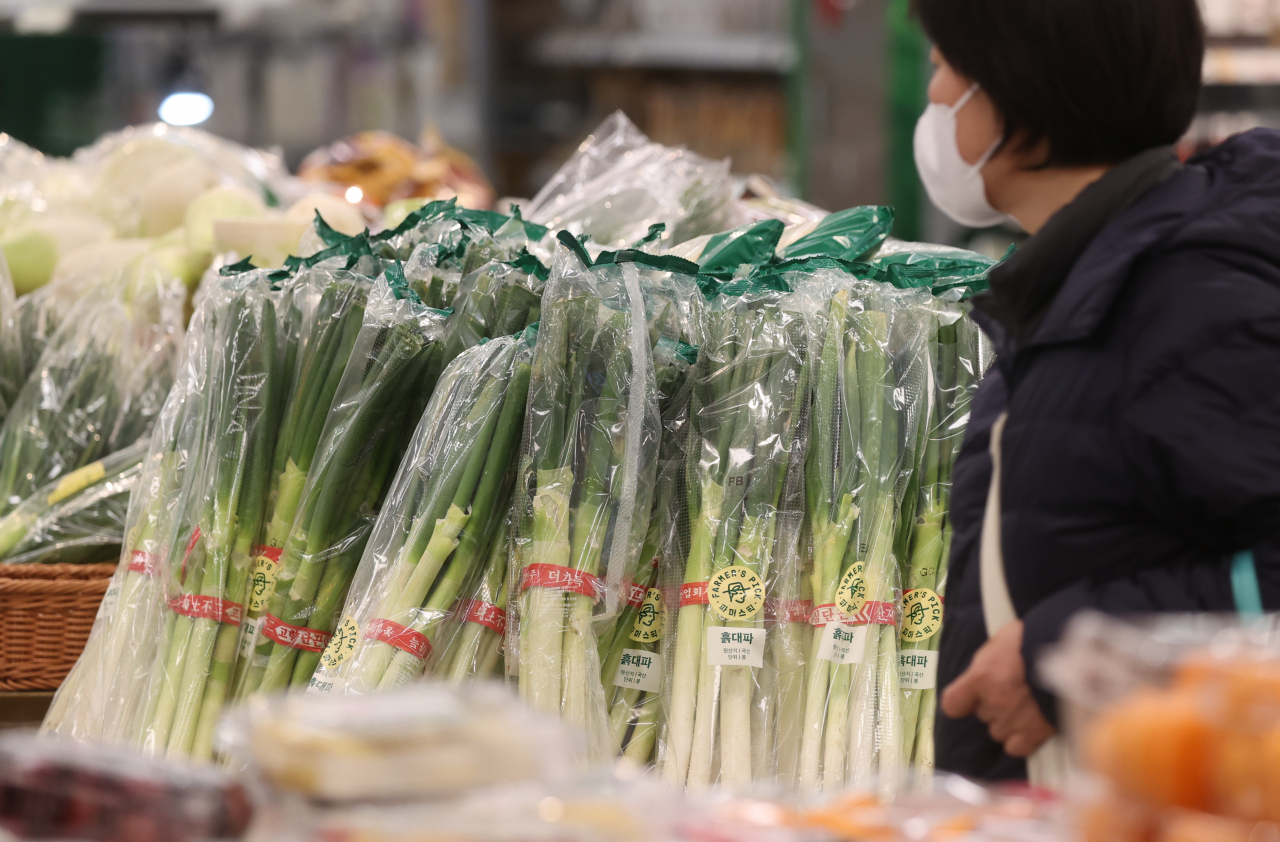 |
A woman buys groceries at a supermarket in Seoul on Sunday. (Yonhap) |
South Korea's on-year growth in consumer prices accelerated from the previous month in January as energy costs shot up to a record level, data showed Thursday, amid expectations inflation will gradually slow throughout 2023.
Consumer prices, a key gauge of inflation, rose 5.2 percent last month from a year earlier, compared with 5 percent growth estimated in December, according to the data from Statistics Korea.
Inflation rose by 5 percent or higher for the ninth month in a row. It increased at the fastest pace in almost 24 years at 6.3 percent in July 2022.
The figure stayed above 2 percent -- the central bank's inflation target over the medium term -- for the 22nd straight month in January.
The prices of utility services went up 28.3 percent on-year in January amid soaring energy prices sparked by the prolonged war between Russia and Ukraine. It was the sharpest growth since the agency started measuring the category in 2010.
South Korea relies heavily on imports for its energy needs. In December, the sector rose 23.2 percent on-year.
The price of agricultural, fisheries and livestock products moved up 1.1 percent on-year last month, sharply accelerating from a 0.3 percent rise in December.
The price of chicken shot up 18.5 percent, and that of rice decreased 9.3 percent.
The price of fresh produce increased 2.5 percent on-year in January, accelerating from a 1.1 percent rise in the previous month, due to the cold wave that led to higher costs of greenhouse vegetables.
Industrial product prices increased 6 percent on-year, due mainly to rises in diesel and bread costs. Prices of gasoline and computers, on the other hand, dropped over the period.
Prices of personal services increased 5.9 percent on-year, slightly slowing from 6 percent growth in December. Costs of dining out advanced 7.7 percent in January.
Core inflation, which excludes volatile food and oil prices, rose 4.1 percent on-year last month, growing at the same level as December.
Prices of daily necessities -- 144 items closely related to people's everyday lives, such as food, clothing and housing -- climbed 6.1 percent on-year last month, accelerating from a 5.7 percent rise in December.
Last month, the Bank of Korea raised the benchmark seven-day repo rate from 3.25 percent to 3.5 percent, the highest level since 2008, to tame inflation. It was the seventh straight rate increase since April last year, the longest span of tightening.
"The government will spare no effort to promptly stabilize prices, responding closely to inflationary factors that led to the recent increase," the finance ministry said in a statement.
In December, the government estimated this year's inflation at 3.5 percent. (Yonhap)







